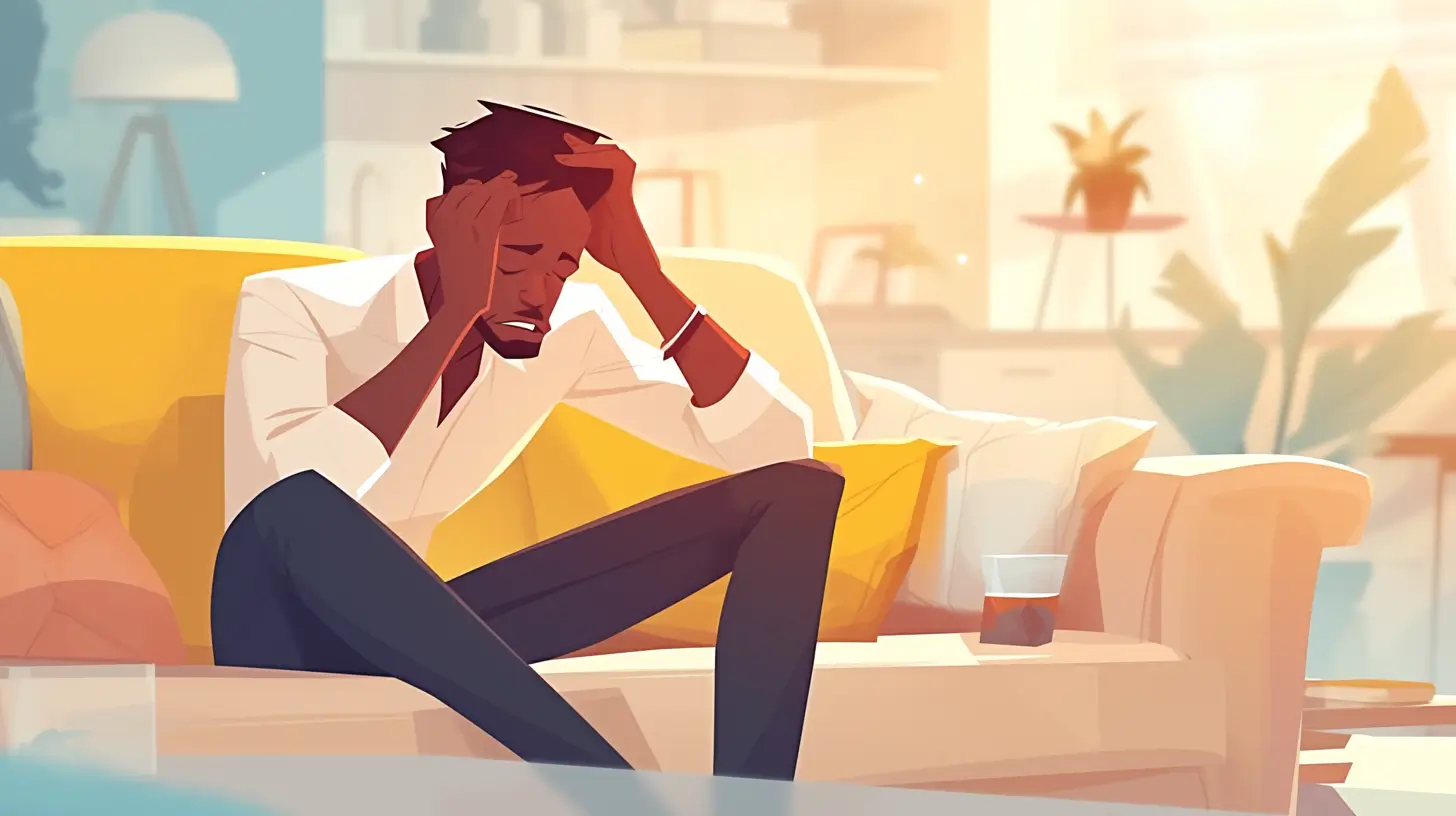Anxiety

Anxiety is a multifaceted emotional state that encompasses both mental and physical aspects. It is characterized by intense, excessive, and persistent worry and fear about everyday situations. People with anxiety often experience heightened arousal, apprehension, and distressing thoughts, which can be triggered by real or imagined dangers. Physically, anxiety activates various body systems, preparing the individual to respond to perceived threats. In summary, anxiety involves a complex interplay of mental and physiological responses, leading to apprehensive uneasiness and nervousness.
Symptoms:
1. Excessive Worry: Persistent and uncontrollable worry about various aspects of life, even when there is no immediate threat.
2. Restlessness: Feeling on edge, unable to relax, and experiencing inner tension.
3. Physical: may include muscle tension, trembling, sweating, and a racing heart.
4. Irrational Fears: Intense fear of specific situations or objects (phobias).
5. Avoidance: Avoiding situations or places that trigger anxiety.
6. Sleep Disturbances: Difficulty falling asleep or staying asleep due to anxious thoughts.
7. Difficulty Concentrating: Inability to focus or concentrate due to racing thoughts.
Treatments:
1. Cognitive Behavioral Therapy (CBT): Helps identify and modify negative thought patterns.
2. Interpersonal Therapy: Focuses on improving relationships and communication.
3. Problem-Solving Therapy: Aims to enhance coping skills.
4. Regular Exercise: Helps reduce symptoms.
5. Healthy Diet: Proper nutrition impacts mental health.
6. Adequate Sleep: Prioritize good sleep habits.
7. Relaxation Techniques: Practice mindfulness, meditation, and deep breathing.
8. Social Support: Spend time with loved ones.
Medications:
The following medications have been gathered from various sources and have not been vetted. They are listed for you to research and better understand your options when speaking with your doctor. WE HAVE NO SPECIFIC INFORMATION THAT SUGGESTS THESE MEDICATIONS WILL BE HELPFUL FOR THIS OR ANY LONG COVID RELATED CONDITION.
DO NOT TAKE THESE MEDICATIONS WITHOUT THE EXPRESS RECOMMENDATION OF A MEDICAL PROFESSIONAL.
1. Sertraline (Zoloft): SSRI
2. Fluoxetine (Prozac): SSRIs
3. Citalopram (Celexa): SSRIs
4. Escitalopram (Lexapro): SSRIs, depression alongside anxiety.
5. Alprazolam (Xanax): Benzodiazepines
6. Lorazepam (Ativan): Benzodiazepines
7. Diazepam (Valium): Benzodiazepines
8. Buspirone (BuSpar): An anti-anxiety medication.
9. Cannabidiol (CBD): Some evidence suggests it may help with anxiety.
10. Duloxetine (Cymbalta): SNRIs
11. Venlafaxine (Effexor XR): SNRIs
12. Propranolol: Beta-Blockers sometimes used to manage physical symptoms
Our Symptoms
Property of The Lovidia Collective LLC. ~ Copyright 2024








